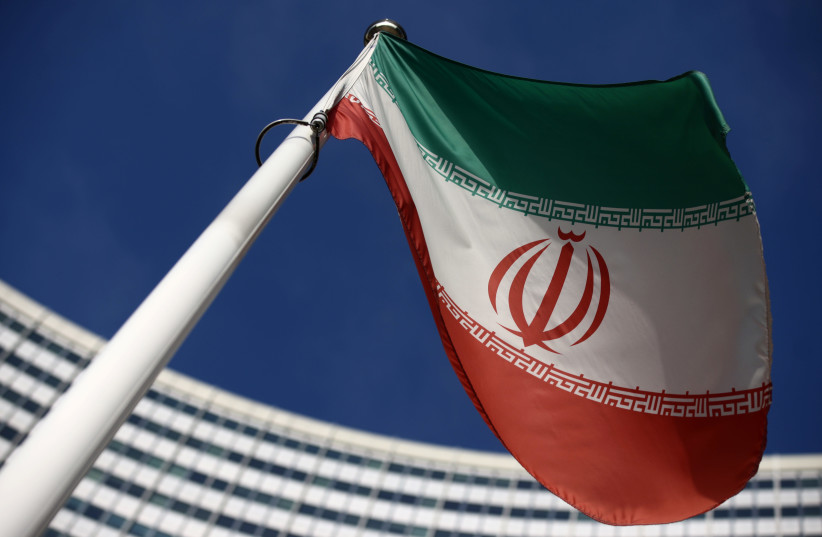The Zionist control of United States policy has prevented the revival of the nuclear deal, Iran Foreign Minister Hossein Amir-Abdollahian said on Thursday, and warned other options were on the table.
“We have intelligence that the Zionist regime has taken the foreign policy of the US hostage,” Amir-Abdollahian charged during a public interview he gave Fareed Zakaria of CNN at the World Economic Forum in Davos. “If the American side will decide realistically, then the deal is at hand.” Amir-Abdollahian added that this is why Israel had come up with false stories about his country.
He blamed Israel for over-dramatizing the US decision, leaked to Politico this week, to keep Iran’s Islamic Revolutionary Guard Corps on its Foreign Terror Organizations list.
The story was publicly confirmed by Prime Minister Naftali Bennett, who said US President Joe Biden had informed him of the decision last month.
Israel has made it seem as if retaining the IRGC on that list is significant for the future of the Iran talks, but this is not so, Amir-Abdollahian explained.

“The FTO thing is just one level of our talks between us and the Americans, indirectly,” he said. “There are still remaining issues which are also important. Unfortunately, the Israeli side made it [the FTO issue] public, magnified it, and now this issue is being portrayed as the main hurdle.”
The Iranian foreign minister also blamed Israel for the story that ran this week in the Wall Street Journal, saying that access to International Atomic Energy Agency documents helped Tehran conceal work on its past nuclear program.
These IAEA documents were part of the cache of 100,000 documents connected to Iran’s former nuclear program that Israel was able to spirit out of Tehran in 2018, and has since shared with the US intelligence community.
"The Zionists are spreading a lot of lies."
Irans Foreign Minister Hossein Amir-Abdollahian
Amir-Abdollahian spoke with Zakaria amid great skepticism that the 2015 Iran deal, known as the Joint Comprehensive Plan of Action, can be revived.
The deal was designed to constrain Iran’s nuclear program to ensure that it did not develop nuclear weapons. It was signed in 2015 between Tehran and the six world powers: the US, Russia, China, France, Great Britain and Germany.
The Trump administration quit the deal in 2018 and reimposed crippling sanctions on Iran. Biden has sought unsuccessfully to revive the deal.
US sanctions
Iran wants the US to lift the sanctions prior to an agreement, while the Biden administration wants an agreement before rescinding sanctions.
The British envoy to the Vienna-based Iran talks, Stephanie Al-Qaq, said that if “we reach the point at which the deal is hollowed out, then it would no longer be worth returning to.”
US special envoy for Iran Rob Malley told the Senate Foreign Relations Committee that prospects for reaching a deal were “tenuous at best.”
The envoys are concerned that given Iran’s advancements in its nuclear program, a deal, once reached, might no longer be relevant.
Amir-Abdollahian said that private messages Iran indirectly receives from Malley and Biden are different from their public statements, which could be political in nature.
If Biden’s intentions are genuine, the foreign minister said, he should “show them on the ground.”
The window for diplomacy was still open as long as sanctions were lifted and the Iranian public was convinced that it would receive economic relief, he explained.
“Give us economic guarantees and remove the elements of the maximum pressure policy of Trump,” he said. “These are the most important issues to us that we have to focus on.”
Amir-Abdollahian claimed that Iran is “serious about reaching a strong and good and lasting deal. Our nuclear program is strong and totally peaceful. We are keeping the window of diplomacy open,” and if the US has a realistic approach, “we will get to the point where we will make a deal. The United States has to make a decision. If the Zionist lobby distances itself from the national interest of the US, just a little, Mr. Biden can reach a good deal. If it doesn’t happen, here in Iran for the last 40 years we have withstood these pressures and we have other options on the table as well.”
Amir-Abdollahian also claimed that the accusation that his country had possessed a program devoted to the development of nuclear weapons was false.
Iranians are “not after developing a nuclear bomb, but the Zionist regime is repeating this lie,” he said.
